The government of Iran issued a formal response to a draft text for a renewed nuclear agreement between Tehran and the United States, among other parties, on Friday that anonymous U.S. officials dismissed as “not constructive,” “not all all encouraging,” and “backwards.”
The administration of far-left President Joe Biden rekindled attempts to sign an accord presumably to prevent the radical Islamist Iranian regime from acquiring a nuclear weapon at the beginning of his tenure. While vice president, Biden was part of the presidential administration that approved the “Joint Comprehensive Plan of Action” (JCPOA), or 2015 Iran nuclear deal, that remains in tatters after Iran routinely violated it, prompting former President Donald Trump to withdraw America from the agreement. The European Union and several other parties to the deal, including rogue states Russia and China, are aiding in negotiations to restore the agreement, which would lift sanctions on Iran reimposed when Trump ended America’s participation in the JCPOA.
The Iranian government used the windfall profits from JCPOA-related sanctions relief to fund terrorist movements around the world, most prominently Hezbollah in Lebanon, the terrorist paramilitaries of the Popular Mobilization Units (PMUs) in Iraq, and the Houthi jihadists in Yemen, who staged a massive military parade this week to show off its wares in use in their ongoing civil war against the legitimate government of that nation.
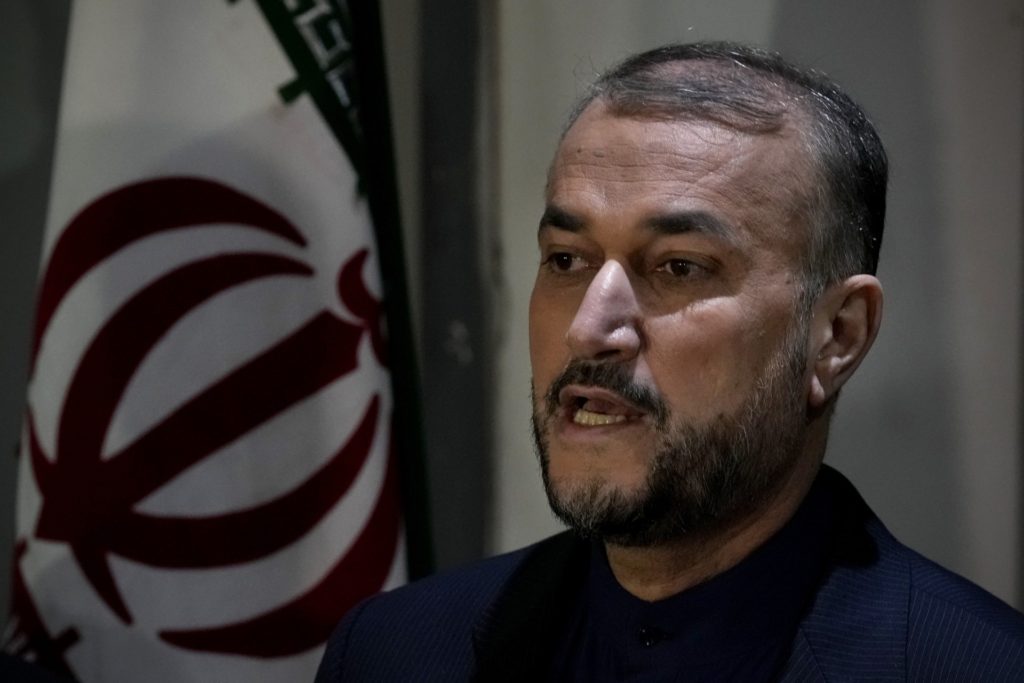
Iran’s Foreign Minister Hossein Amir-Abdollahian, speaks during a joint press conference with his Lebanese counterpart Abdallah Bouhabib in Beirut, Lebanon, Thursday, March 24, 2022. (AP Photo/Bilal Hussein)
Iranian officials repeatedly stated this week that they were “studying closely” the draft of a new agreement offered by the European Union and United States and finally returned a reply on Friday.
“After receiving the United States’ response, the Islamic Republic’s expert team examined it carefully and Iran’s responses were compiled and submitted to the coordinator tonight,” Iranian Foreign Ministry spokesman Nasser Kanani told reporters on Friday, according to Iran’s Tasnim News Agency. “The text that was sent (by Iran) has a constructive approach aimed at finalizing the negotiations.”
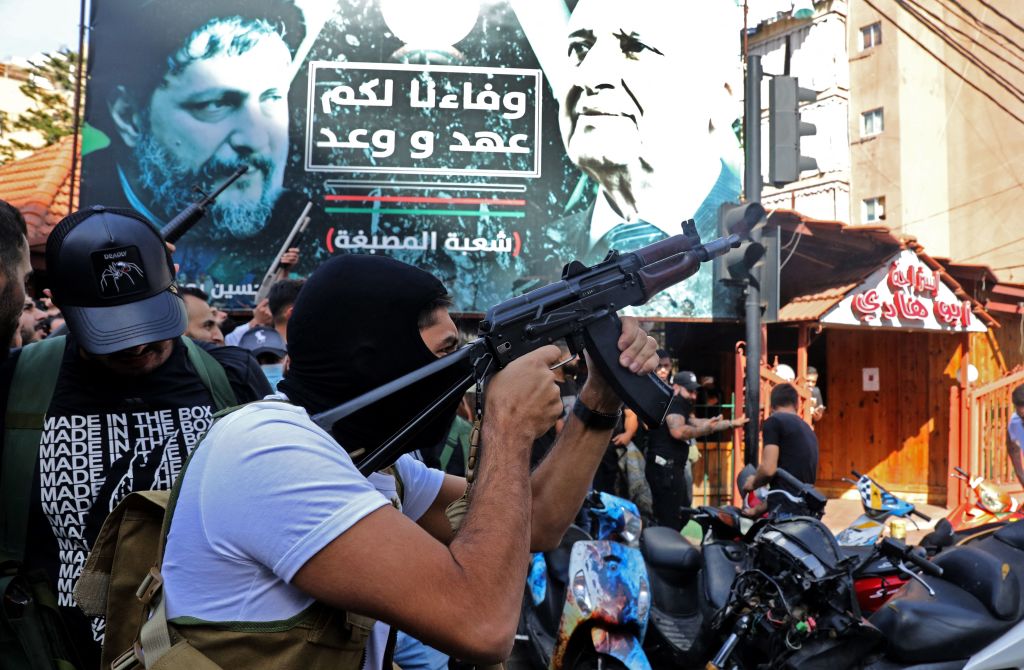
A member of Lebanon’s Hezbollah movement fires his gun during the funeral of some of their members who were killed during clashes in the Tayouneh neighborhood of the capital Beirut’s southern suburbs a day earlier, on October 15, 2021. (IBRAHIM AMRO/AFP via Getty Images)
Iran’s foreign minister, Hossein Amir-Abdollahian, said on Friday that “acceleration and facilitation of finalizing” talks to cement a deal with the West was a priority and was “taken into account” when writing the reply shared that day, according to Iranian state outlet PressTV. The outlet quoted the foreign minister as expressing optimism for a “good, sustainable, and strong agreement.”
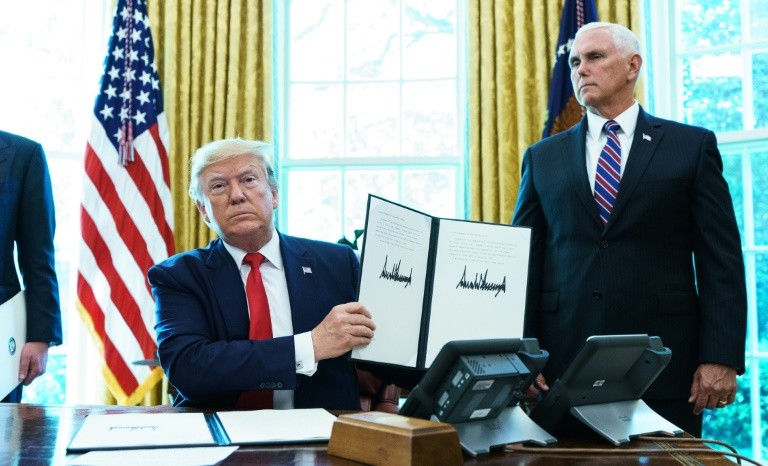
President Donald Trump signs with Vice President Mike Pence (R) at the White House on June 24, 2019, ‘hard-hitting sanctions’ on Iran’s supreme leader. (MANDEL NGAN/AFP via Getty Images)
PressTV noted that the on-the-record response from Washington was dramatically different in tone than what the Iranian foreign ministry presented as an uncontroversial step forward in what it has repeatedly referred to as a process to remove sanctions, not an agreement to prevent Iran from possessing a nuclear weapon.
“We are studying it and will respond through the EU, but unfortunately it is not constructive,” PressTV quoted American State Department spokesman Vedant Patel as saying.
Anonymous American officials speaking to Politico offered even direr assessments.
“We are studying Iran’s response, but the bottom line is that it is not at all encouraging,” an unnamed “senior Biden administration official” reportedly said, adding, “we appear to be moving backwards.”
Politico also spoke to a European official who dismissed the Iranian assessment of the draft as “not reasonable.”
Neither the Iranians nor the Western side has yet to reveal any details about what Iran’s response contained or where any potential points of contention could have surfaced. Past reports indicated that Tehran had demanded the United States no longer designate its Islamic Revolutionary Guard Corps (IRGC), a formal wing of the Iranian armed forces, as a terrorist organization, but reports in August claimed that Iran had dropped that demand, and Iranian officials began claiming shortly thereafter that they had never made such a request a “key demand.”
Another point of potential conflict is Iran’s resistance to allowing the International Atomic Energy Agency (IAEA), the United Nations’ oversight organization, to inspect sites developing nuclear power to ensure that they are not used to build weapons. Iranian President Ebrahim Raisi suggested last week that Tehran would not agree to any new deal that requires the IAEA to inspect undeclared nuclear development sites. Iran has repeatedly broken agreements in which it would have had to allow the IAEA to inspect sites.
Iranian government adviser Mohammad Marandi, believed to be involved in negotiations directly, dismissed the reports of widespread disappointment and frustration on the U.S. side by claiming that America’s definition of “constructive” was disingenuous.
“For the US ‘constructive’ usually means accepting US terms,” Marandi wrote on Twitter. “It’s time for the Biden team to make a serious decision.”
Marandi insisted that Iran had offered a “very reasonable” response to the proposed agreement.
Iranian officials had issued apparently intransigent remarks before Friday, differing in tone from the statements issued by the Foreign Ministry. Raisi, for example, declared in a speech on Thursday that Iran was “invincible” and prepared for any military combat, a belligerent declaration at odds with negotiations presumably to ensure peace.
“The Islamic Republic of Iran is now stronger than ever and our enemies are weaker than ever before,” Raisi asserted. “That is why the White House admits that the ‘maximum pressure’ on the Islamic Republic has faced a humiliating defeated [sic] and failed to deliver any results.”
“Maximum pressure” is a reference to Trump’s restoration of sanctions and withdrawal from the JCPOA.
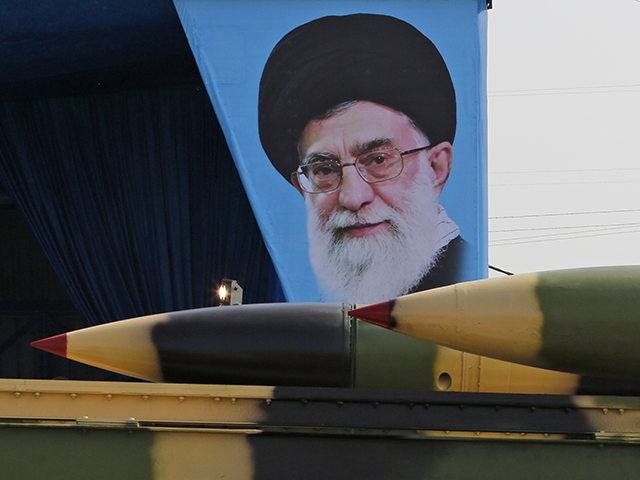
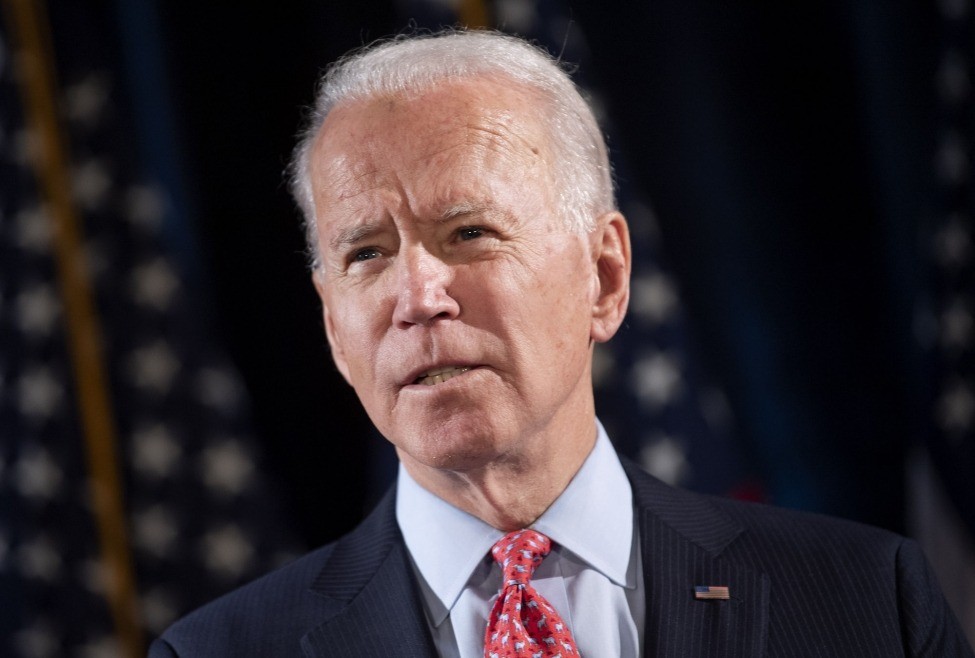
COMMENTS
Please let us know if you're having issues with commenting.